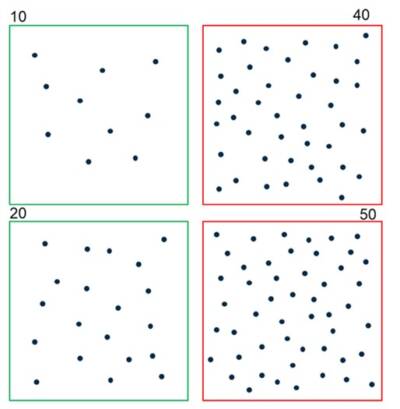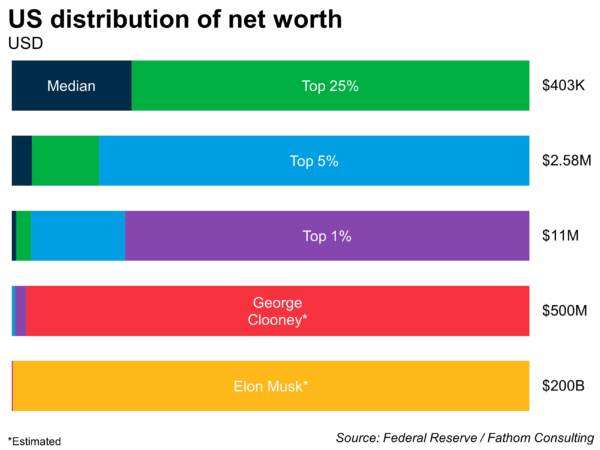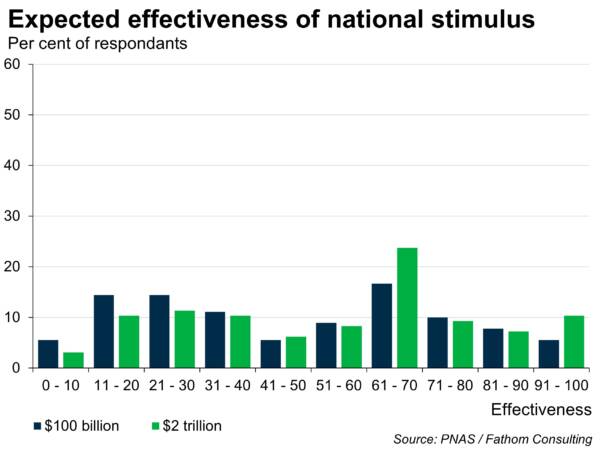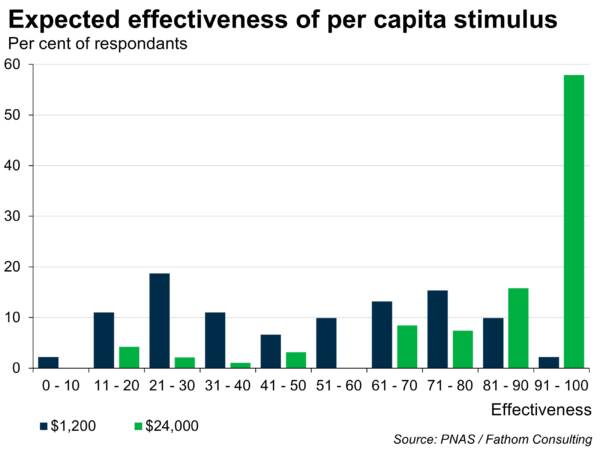A sideways look at economics
How wealthy is Elon Musk? ‘Very’ would usually suffice, but to be more precise his net worth is somewhere around an eyewatering $200 billion. We can all agree that this is a lot, and probably don’t feel we need to waste an unnecessary amount of time trying to grasp its true magnitude. But put it this way: someone earning the median UK salary of roughly £33,000 would have to work for nearly 4.4 million years, without spending a single penny, to accumulate an equivalent amount… Surprising, right? But why? Most of us are already aware of the enormous fortunes that billionaires like Musk hold, yet are still shocked by this comparison. The reason lies in our inability to effectively perceive large numbers.
Launching your career 4.4 million years ago would be pretty challenging. For starters, you’d be the only human around for a while, and half your time would be spent waiting for other human-like primates to emerge and keep you company. It would then be another two million years until Homo sapiens began to evolve from these primates. Over that time, our brains developed in line with what was best for the survival of the population, which means we evolved to perceive numbers logarithmically rather than linearly.
A logarithmic perception of numbers means, for example, that the difference between 1 and 10 seems greater than the difference between 101 and 110. In psychophysics, Weber-Fechner law attempts to define this effect, stating that when there is a larger quantity of something, a more significant change is needed for that change to become noticeable. Put simply, it is the relative changes we have evolved to focus on rather than the absolute ones. It mattered more for our ancestors in Africa if it was one lion or two in front of you than if there were 99 or 100 deer in the herd you are hunting. Take the diagram below: the bottom squares contain 10 more dots than the upper ones, but the difference is much more noticeable in the green boxes compared to the red.

Even today our everyday lives rely little on our ability to comprehend large numbers, unless maybe you were the person that our school maths books described as buying 500 apples. However, this gap in our perception has noticeable impacts on modern society. It can, for example, contribute to the perpetuation of wealth inequality. As we’ve seen, when we hear about the rich amassing fortunes in the billions or even hundreds of billions, it’s challenging to truly appreciate the magnitude. This lack of accurate understanding leads to society undervaluing the size of inequality, and to the normalisation of extreme wealth. In turn, this hinders efforts to implement policies that help to correct these economic inequalities, like progressive taxation or wealth redistribution, by making it difficult to rally support. Even the rich may not fully comprehend the astronomical divide that separates them from the likes of Musk and Bezos.

The findings of another interesting piece of research have questioned our numeracy further, suggesting a lack even of logarithmic perception. The study asked each participant to rate the effectiveness, on a scale of 1 to 100, of one of four options for an economic stimulus during the COVID pandemic. Two options were presented at a national level, while the other two were presented on a per capita basis. The stimulus amounts were differentiated as follows: a small stimulus of $100 billion nationally and $1,200 per capita, and a large stimulus of $2 trillion nationally and $24,000 per capita.
Despite the fact that the ratio of the large and small stimulus was the same (20:1) for both the national and per capita levels, the results differed significantly. The expected effectiveness of the two smaller programmes was similar, with an average score of 44 for the $100 billion stimulus and 47 for the $1,200 per capita stimulus. However, there was only a slight increase in the expected effectiveness at the national level when the stimulus was increased to $2 trillion, with an average score of 54. On the other hand, when the per capita amount rose to $24,000, expectations rose sharply with an average score of 83.


The results reflect a greater difficulty in distinguishing between larger numbers compared to smaller numbers even with a constant ratio, suggesting that numerical representation follows more of a curvilinear than a logarithmic function. The effect of this finding implies that, perhaps unsurprisingly, public perception of policies depends greatly on how they are expressed. A jump in general UK government debt from £2.4 to £2.5 trillion doesn’t generate much attention or concern in the population. By contrast, policies like universal credit, which are often expressed in lower denominations such as their monthly cost of between £250‒£340 per person, are a lot easier to visualise and thus to have opinions on, whether positive or negative.
Our innate inability to comprehend numbers accurately leads to a misallocation of resources. By not fully appreciating larger magnitudes, whether it’s the inequality gap or the potential lives saved by COVID lockdowns, we almost always undervalue them — leading to inadequate solutions. To better overcome these challenges, we should lean more on our relative evolutionary advantage, by using comparative and relatable measures. Think of how much easier it is to grasp the scale of deforestation when we use more relatable units like football fields per minute rather than millions of hectares. Whilst we wait another few million years for evolution to work its magic, in the short term we can use these methods to help limit our cognitive bias. When it comes to understanding the mystery of magnitude, a little perspective goes a long way.
More by this author